Podcast 130: How Will Blears Built and Sold an Amazon Affiliate Site Making $40,000 a Month

When you buy something through one of the links on our site, we may earn an affiliate commission.
I had the opportunity to interview Will Blears from OneMansBrand.com. Will has been a long time reader of Niche Pursuits and we've crossed paths online a number of times.
However, I had no idea that he had recently built up a site to the $40,000 a month mark and sold it!
During this interview, you will hear how Will built up his Amazon Associates site, his content strategy, link building strategies and more. We also dive into the process of selling a site and all that goes into that.
Enjoy!
Here's the Transcript
Spencer: Hey everyone. Welcome back to the Niche Pursuits podcast. I’m your host, . I do have a slight sore throat today, so excuse me if I sound a little rough, but the show must go on. Today I have Will Blears on the podcast from onemansbrand.com. Will, welcome to the Niche Pursuits podcast.
Will: Hey Spencer. Thanks for having me.
Spencer: Yeah, it’s great to actually have you on the podcast. I know we chatted a few times just privately via Facebook or Messenger. It’s good to actually sit down and talk because you’ve done a lot of really cool things and I want to dive into a recent success that you had. But first, can you give us a little bit of a background on your business and work experience before you were building websites? What were you doing?
Will: Work resource is rather limited before I worked in websites. I started building websites when I was 14-15, I think about 15. Mainly, I put two websites, basic HTML back in the days of using Dreamweaver and stuff. That was just trial and error and I was just playing around as you do when your 15 years old. It’s not really a business back then, it’s just a hobby. I started making money with AdSense, I started realize that you can actually make money online and it just spiraled from there.
I’ve always been entrepreneur so I always knew that. I wanted to work for myself. When your 15 you don’t know exactly what you want to do, what your business is going to be and it just came out of just doing that. From then, I just started investigating every area of online marketing, really. Obviously, everyone was back on forms back then like Digital Point and Warrior Forum and everything else that we’re going on. There’s loads of content and there is basically the same, be sponge and soak it all in. I did a lot of Clickbank stuff and mainly as an affiliate, a little bit as a vendor. That was always interesting.
I always knew Amazon Associates was about but I was always skeptical, similar to a lot of people back then. You saw digital products and you saw the 50% margins, commissions that you’re getting, and you saw Amazon and you saw the 8% or 9% they were offering back then, and your like, “Well, why would I do that?”
I started to test it out and then I realized there’s more to it than that of the conversion rates and refund rates. The conversion rates are a lot higher, refund rates are a lot lower than the old digital products that are used to come out and obviously because you get commissioned for everything that they buy. There’s also that extra and I just decided that I wanted to focus. You’ve mentioned it before, the whole shiny object syndrome and I did that a lot. You do that a lot when your learning. You bounce from one thing to another. I just thought like, “I need to actually make some money out of this. I need to actually sit down, do this properly, and focus on one business model. So I just started making it Amazon affiliate sites.
I did work for a company for a few years. I was paid media advertising. I was working in digital agencies in London and I worked my way up to managerial level but it was always a temporary solution. It was never going to be permanent. I only stayed there for three or four years and then I just called it quits. I started freelancing and then build up my affiliate empire on the side. Then got it to the point where I no longer need to do the freelance work and focused 100% on the affiliate side. That’s it, really.
Spencer: Very good. Can you give us maybe a time frame there? When you were 100% on your own, building up Amazon affiliate sites, that sort of thing, what year was that?
Will: I quit my job in 2013. That sounds about right. Yet, I think it was about August 2013, then I moved to Korea and did the freelancing. Same stuff, basically, the paid advertising. I basically just did advertising for clients like American Express and stuff. I did the paid advertising like PPC, Google AdWords mainly, and I continued doing the freelancing probably for about a year-and-a-half because it was good money. Freelance-paid PPC, freelance-paid advertising has always been good money, and especially if you got the expense that I had. It was like, “If I had the time, why not do it,” sort of thing.
Initially I would focus about 75% of my time on the freelance because my affiliate side of things was relatively small. After about six months of being freelance, I probably dropped it down to about 50% time on the freelancing, 50% time on the affiliate side because I began to realize, to be able to grow my affiliate size I need to invest more time, so I needed to pull back from the freelancing side and take the risk of reducing my income potentially and to increase my time on the affiliate side.
After about a year-and-a-half, I completely stopped the freelancing. I did have one client but it was very, very small amount of work and it was mainly because we had a good relationship, and I just basically focused on the affiliate side. Pretty much all of it was Amazon Associates.
Spencer: You’ve been building Amazon Associates sites for the last few years, at least, and some of them have done very well. I want to talk about one site in particular and focus on that because you recently sold the site back in January. I’d like you to basically just tell us a little about that, maybe when did you start the site, and why did you sell the site. Then we’ll go from there.
Will: I started the site in late 2014. I think it was September or October when I started the site in 2014, so just into four years now. I sold the site in January and I started to sell the site I think was about six months earlier. What would that have been like? Maybe that would have been pretty much a year ago. I think it was August last year. It was quite a long process.
Spencer: Are you willing to share any income numbers in terms of how much the site was making or why you wanted to sell the site?
Will: Income-wise, I hit five figures in July 2016 with my first five-figure month for that site. Then from there it doubled every month for about four months until about November where it hit, we can say between $20,000 and $30,000 a month. It was consistent and then it was March the next year when they brought in the Amazon rules, they found credits to the March 2017 when I think Amazon changed their admission test, which obviously pushed everyone to reassess everything, that we were doing especially monetization models.
I know at that point I already previously looked into third party, outside of Amazon, going direct to the vendor or going on different platforms to look at permissions and such. That kicked me in the ass, basically, to actually go into that because I was concerned as everyone else was about their massive revenue dropping by 50% almost.
In March, I started to implement other programs on my websites and basically I realized that I could actually almost double my income and the site got to, I think the peak was $40,000 or $45,000 and I was like, “Wow, that’s such a quite a crazy amount of money to be making passively.” That was from about March 2017, April 2017, on which it was making about $40,000 a month.
Spencer: That’s really good. I want to dive into that a little bit in terms of how were you getting your traffic? Is this a straight SEO website, or were you doing some PPC there to supplement that, or maybe just give us some idea?
Will: It’s a good question, actually, because from the PPC side, you would have thought with my experience I would have done that and I did look through it quite a lot but the CPCs were just too high. The market that I was in was a very highly marketed area and an area where companies were investing millions and millions and millions into basically hammering advertising. It inflated prices of all types of advertising online quite a lot to meant as an affiliate, obviously just on a commission, you’re squeezed out of it.
I focused 100% on SEO. I did try and do a bit social but to be honest, my social skills in regards to social marketing, especially organic social marketing aren’t best or weren’t the best. I have learned a bit since then. But it is also one of those things where not every Amazon niche is the most social. Imagine doing a site about gardening trowels or something, or gardening tools. It’s not the most social thing. I knew it wasn’t going to be massively effective to use my time there, so I just focused on the SEO.
Spencer: Very cool. That what we like to talk about is SEO for sure. What worked well for you? Was it just finding really long tail keywords? Was it link building? What was the strategy that worked well for you?
Will: It’s interesting because when I start the site, the reason I started the site is because I saw a few really hefty keywords which have between 10,000 and 20,000 searches a month, which is not a lot but it’s a decent amount. I knew that keyword because I knew how much commission I would get for a sale. I knew that keyword would produce X amount of money. I knew as long as I could run for that keyword, I could make X amount of money. I looked through that, it’s not a technique that I would recommend anyone doing, really, because you need to really assess the SEO market.
But I just thought, “Right, I wanted to basically make a site, I made five figures, and I was just very much focused on ranking for that keyword. There’s three or four keywords, basically, and they were all header keywords, the main ones at a page you want to rank for, and that will going to take several months if not a year. So I just thought, “Right, I’m going to do SEO and and I’m going to focus on these keywords,” and whatever else comes ranking-wise, keyword-wise—because I knew the long tails would also come—with that, I was like, “I’m just going to focus on these. I did that and I just persisted for a year, a year-and-a-half until I started to see some really good revenue from it.
After the site became more of an authority, obviously then I do quite a lot in search console and if I see a key word that’s position 8, position 2 to 10, I do a lot of optimization on the site, on the page, particularly to obviously boost those rankings. If I see keywords between 20 and 40, I would look into that and I would see expanded content also, do some link-building. There’s a lot going on after I started to build into an authority.
Spencer: Let’s talk about two of those things. Obviously, you’re going after these bigger keywords like you mentioned but I like the search console you mentioned during some on-page optimization. What are a couple of on-page optimization things that you were doing or just general tips that you would give to people that maybe their ranking bottom or first page, what are some things they can do?
Will: As you probably known, obviously I was running sites that have got some traffic enough so you look in search console. When you look at individual pages queries of seeing search console, you’ll see there’s so many—usually more than 1000—queries for that page. What I like to do is basically obviously first is that to see, I shorten my impressions, obviously, until I can see which one has actually the largest amount of traffic available, then I look obviously my CTR versus the impressions just to see where I’m ranking in terms of how much traffic I’m gaining. Obviously, now it’s a little bit more difficult to oversee features, snippets, and such but back in the day where it’s more simple and I would basically look at whether or not I’m getting a decent amount of clicks for that impressions. With the impressions with 5000, I’d want to get at least 500 clicks. I see 10%.
If I saw something crazy like it was 50,000 impressions or say there’s 10,000 impressions, and I was only getting 20 or 30 clicks, then obviously, you can see the obvious position might have been 12 or something. Then I’d work really hard on getting that keyword ranking and what I’d do is basically is first look at the actual keywords on this page, because sometimes you went for keywords that are not even on the page because you don’t actually look at optimizing for that first. If it’s not, then obviously you look at potentially using it in the head of the tag, say H1 tag, but if it’s not always possible because you don’t know stuff and obviously, also you want the actual title to be quite nice and obviously English, not just stuffing in words.
If that’s not the case, then I look at, well have I actually got content on this actual keyword? It is can I build it out more? Can I add a subsection where the H2 or the H3 tag? If I’m not done that, then I’ll do that. Otherwise, I’ll look at alt text for images, see if I can do that. If I can’t do that, then I’ll look obviously into linking from other pages to that page with that as the entry text. If I can’t do that, then I’ll look at just maybe adding the keyword, improving the keyword density. I just keep going down a checklist of small incremental changes to the page and enough see folks on that keyword.
But I’m also wary that I don’t over-optimize the page. It’s especially bad now. A few years ago, it wasn’t even that bad but nowadays, it seems over-optimization is like Google really don’t like it at all. A few years ago you probably get away with it but now it seems a lot more difficult to do that.
Spencer: What about content length? Were you articles really long? Was that important factor, you think?
Will: Yeah, definitely. I’ve always made sure my content’s been longer than everyone else is. Before the days of Brian Dean. Before the days of Oxy, him posting that ask how we got in actual content and lengthen it and benefited that, I was always doing maybe 2500-3000 words per page and then bolstering on that. I always go back and I always spend most of my pages, especially let’s just say the best coffee machine page, for example, not an actual single product review the page that might review several products and also have information about what the consumer needs to look at and to actually assess the coffee machine market.
What I would always do is generally say like, “Nowadays my page is at least 5000 words,” but back then my pages were at least 2500-3000 words, and now it usually review five products. I see a lot of people do 10 products but I find when you give in a consumer too many options, it’s just confusing. How are they supposed to make a choice, like 10 products is a lot of products.
What I generally do is that I do five and I do a top three, or I see a lot of times now, a lot of people say like, “The most affordable option is this but the best option is this, and this option is great for X.” I do try and split them up so a consumer knows. You target a specific niche of the consumer. If the consumer wants a coffee machine that is really good at Espresso, then obviously you can say this machine. If a consumer wants a budget machine, they can say this one. I try not to give them too many options. In terms of length, I try and make it at least 5000 words these days.
Spencer: It talks a little bit about on-page optimization, content link, what about link building? How important is off-page optimization link building strategies for you?
Will: It’s such a strange, strange market, marketing trying to glimp on it. It’s so hard to do. In the olden days when I first sold that site that we were talking about before, I did PBNs, did most people in 2014, 2013, and I continued to use them for probably about nine months, maybe. Then I started to basically reduce my reliance on them.
So initially it was PBNs, Web 2.0s, as everyone’s used to do then, press releases brought a bit of block on my tempo but not really doing that for a long time. I just generally did that just create more link disparity. I kind of started to focus more on–I can’t say – just still getting guest post and stuff but I focused more on trying to get legitimate websites linking to me. Whether or not I’d actually pay for guest posts or actually contact them myself and get a guest post, I started to do more of that and less of the PBNs, so obviously trying to get links and actual legitimate websites actually brought traffic.
I did for a while was trying to focus on the established, really high-authority sites, not for that website in particular, but another website I got links to the site from tech.co, which was I think a root domain 84 or something. It was really high. But then, everyone started using that website. You get links from one website and then an SEO finds your site and actually looks at your root domains, then linking domains, then everyone starts doing it.
After a while, everyone’s getting the same links. It’s like they’re all Huffington Post and Engadget when they start doing guest post and everyone was getting them. Then obviously they close them off and now I think they’re all nofollow. But yeah, I did a lot of that as well. Nowadays, I just try and do as much outreach as possible.
Spencer: Okay. So link building is pretty important, always has been. Would you say you’re spending a lot of time there or do you have a system in place where a VA is handling a lot of that. What does that look like?
Will: No, I still spend a lot of my time myself. A lot of my friends have systems now but I’m really bad at trusting other people basically. My issue is I just can’t find anyone that I can actually trust while she take over. I’d love to but there obviously I got the funds to invest. But it’s a case of I’ve been doing a certain amount of level 12 years or something, now 15 years, and I’ve been stumbling quite a few times–by people who have just not been able to deliver what they promised, and I think that’s had a negative effect on my trust for people going forward. But it’s something I need to overcome.
As you are probably aware of, you’re definitely aware because you have your own team and you’ve done for several years. You need to build out a team to be able to get to the next step. It’s something on my to-do list for the next six months basically, and I’m still looking at building a team in-house in Manchester. I know it’s more expensive but I feel I could benefit from actually having a team in an office and that they are there with me fact-to-face, and I can train them, and see what they’re doing and stuff.
Spencer: I would like to talk a little bit about the projects that you’re working on right now. But let’s wrap up this discussion about the site you sold. I don’t know that you really need to share how much you sold it for because you shared already how much it was making. I think people can get a rough idea there. Of course, you can share more there if you are willing to. How did you find somebody to buy your site? Did you list this at a brokerage? What was the process of selling the site?
Will: I initially looked at the site obviously to be sold as soon as it hits six figures, to be honest, because that was always my initial goal was six figures and then I wanted a seven-figure sale. But obviously when it hits six figures it kept growing and I was like, “Well, I can’t sell it if it keeps growing in revenue every year.”
It got to the point where it was consistent at about the $30,000-$40,000 margin, and to be honest it’s more from a gross point of view, and it goes back to me saying before that I’m very hard to trust people. It goes back to why I felt the site, for me myself, doing work on the site, I got it to the point where I could get it to. I thought I needed to basically give my baby, so to speak, to someone else. I wasn’t just going to give it to anyone. I needed to make sure that it go to a company or a person that will actually would take it to the next level because that’s what I wanted to see it do.
When it hit those 30s-40s, I started to investigate brokers and I did finally go with FE International. I decided to go with them. I was very hesitant on going with a broker because, to be honest, I just think that they charge way too much and all brokers, I just think they charge crazy amounts of money.
I was actually looking at doing it myself, basically. I calculated that I would have a six-figure budget to spend on marketing just to sell my own website and being from a paid advertising background, I thought, “Well shit, I can do that.” I thought my biggest concern was because it was such a big deal, I didn’t want to mess up because if I did mess up it could have been very expensive and there was also the idea of what happens if someone scams me. Obviously, I’m not got the experience. I’m not experienced in the whole brokering in especially doing the due diligence on the buyer. I just thought it’s way too risky for this size of a site, so I decided to go with FE International.
They were quite good, to be honest, in terms of getting everything set up and the timeline, to get everything set up from getting all the data and the details they needed, and doing all that due diligence. It just took quite a long time to go with the process of actually negotiations, basically, and to actually find a buyer was actually a bit of a timeline but probably four weeks, maybe if that. I had a few different buyers lined up but they were all offering different things, as you probably know, like the whole payment structures, terms, earn outs, and all of that stuff that goes with selling a large site or, in your case, a software company. Yet, it probably took six months in the end to actually close the deal.
Spencer: It is a long process. It sounds like maybe you had an interested buyer after a month, but then it takes several months to go through legal, terms, negotiations, and figuring out what are the payment terms going to be exactly. All of that, a back-and-forth. In the end everything work out how you had hoped to. Were you happy with the end result?
Will: It cost more than I wanted it to in terms obviously the broker’s fees was extortionate. I had legal fees for a lawyer in the UK, I had legal fees for a lawyer in New York, I had escrow fees which was minimal, to be honest but they’re on top of the finance. I had exchange fees because unfortunately I’m not in the US, I’m in the UK. That took another chunk of cash. Then I had the actual exchange of fees and not just the exchange rate but exchanging the fees through an FX company.
It was like every step of the stage of selling the site was biting into that initial price I got for the website. Everyone was just taking that little bite or big bite. It got to me a bit, to be honest. It was quite demotivating to see how much money you actually lose in all of those fees, and then obviously when it comes to tax as well. It got me down quite a bit, actually, because it’s a lot of cash and it’s quite depressing. But at the end of the day, that’s business and that’s how it works.
In hindsight, there’s other ways I could have done things. I learned about hedging and I didn’t realize I could hedge. It’s just not something I really understood. It’s not really something I’ve investigated or needed to before, so I could have saved some money if I did that. I learned, obviously, from the legal side of things that I could have made them a lot easier. I didn’t need the UK lawyer. I could have just used a US lawyer. The US lawyer was a lot cheaper as well.
All of these things, and from a broker side of things, would I use a broker again? Now I’ve got the experience probably not. I’ll probably do it myself but then it was definitely worth it for the piece of mind that they obviously offered, but yet, there’s a lot of money.
Spencer: No, it is. There’s a lot of fees, a lot of legal work that goes into a process of selling a business the size that yours was. I’ve been all through that with LongTailPro and sold another business actually in December, my Amazon FBA business. I’ve been through it a couple of times and it is a process.
Now you got some cash, you’re sitting here, you have this knowledge of how to build websites. You probably didn’t sit around and just thinking about it. Have you started a new site since then or do you just have existing sites that you’re working on now from that you would build previously.
Will: A bit of both, really. I had a few sites that were hit with from Google in March 2017 and I wanted to begin working on those because they paid for then quite fantastically. I just not worked on them for a year. I had oversized, I started but have not grown. Most of my sites were in very early stages except that one big site and I decided that I wanted to obviously bring those back to life but I also wanted to take the experiences that I’ve learned and all that through the three-and-a-half years I had the big site and apply them to the new site.
One thing I’ve changed in the way I do Amazon Associate sites is I actually buy all the products and actually review the products because that just show, in this day and age, when you got companies like the Wirecutter and several other bestreviews.com, and so on, whether I actually reviewing majority of the products themselves, you just can’t compete at that level anymore unless you’re actually willing to sacrifice and invest the money into actually buying the product or getting them for free if you want to go and contact the brand.
I started doing that in multiple niches. It’s not been the easiest process because significantly more time-consuming and significantly more costly as well. But I think in the long term it will pay off basically.
Spencer: Yes. So you’re actually getting the products and writing the articles yourself?
Will: Yes. I do two things, depending on the site. I basic buy the product myself, review the product myself. Sometimes I would get a writer that I had quite a relationship with to write the initial review of the product, then what I do is go in and edit and add basically my expert opinion, based on the review that I’ve done. For example, they might write about, coffee machines, and write a pretty detailed review of the coffee machine, things like the features and specifications, things like the way it looks, and the brand itself, things that anyone can write about, you don’t need to be hands-on on the product.
Then what I do is I add a hands-on section. I’ll also go through as you would when you’re editing and proofreading content anyway, and basically add a more personal perspective on things. If they say, I don’t know, “It’s really good at cleaning,” I will say, “It is but then coffee get stuck in this place in the coffee machine and it’s good to use a white filter, whatever it is,” and maybe they’ll say, “It only weighs 5 kilograms,” but I’ll plug, “Actually, it’s more like 10 and it has this rubber seals on the bottom, and it’s actually quite hard to move, therefore it’s quite good on your kitchen surface or what not,” and continue like that. I find that that’s the best process for me right now because obviously time is limited.
Spencer: That’s really cool that you’re stepping above and beyond what I know a lot of people do. You’re actually reviewing the product, making it more detailed in your reviews. I think that’s good. Anyway that you can stand out, that really helps a ton. That’s really interesting, for sure.
Perhaps the final question here, what is your outlook for SEO? Are you still bullish on search engine optimization? Are you still building sites, hoping to rank in google and get that free traffic? Especially just for people who are listening in that are just getting started, is this what they should be doing?
Will: Honestly, actually I was never going to go anywhere. All kinds of traffic is always going to be a fundamental part of an Amazon affiliate site, if not every site, it’s free traffic. As I said before, the way if we talk specifically about Amazon Associate—because that’s what I do—if you look at the growth and how things have changed over the last five years in terms of the quality of sites that people are creating, the quality of content that people are creating, you look at the way it’s going and look at it as a big competitors we have from big media publications such as Hirsch and then PERCH Media and those guys who own Tom’s Hardware and as the ones I mentioned before like the Wirecutter, New York Times, the bestreviews.com and stuff.
You look at them soaking up all the main keywords, all the long tails and stuff. You realize that the quality of the site needs to be a significant better than it used to be and to compete in organic. I don’t think people should be swerved by that. I think they should keep focusing on SEO but I think they need to realize that it’s no longer a case of hiring a non-English writer to write an article or even an English writer to write an article and just simply put that on your website, add a few pictures and a few subheadings and “Hey Presto” that starts it. You really need to step up your game now.
Especially from a non-page SEO point of view and especially with Google and their algorithm these days, they’re so heavy on the affiliate sides. They never liked affiliate sites. It’s just Google. But the quality of the sites has to be so much better now, and that’s people’s issue because it takes more money, it takes more time, and if you’re a beginner, it takes a lot more persistence and a lot more knowledge which you’re going to learn on the job as you do it.
I say it all the time but persistence is the key to success. It really is. No one has to fail at Amazon Associates. You’ve done it before with all the niche site projects. You laid out the blueprint to succeed. If everyone did that from stage 1 to stage 10, they would have made money without a doubt, but people get stuck and they lose confidence or they just don’t have the confidence in themselves. It’s really sad because I know and you know, and everyone else who actually has made five figures or six figures knows that if they just kept going, they would have made some money.
Spencer: I think that’s a good to hear your opinion on that subject and in terms of jude’s motivation. I think a lot of people do get stuck. They don’t stick with the project, see it through to the end. As you said, you’ve laid out a lot of the process, I’ve laid out a lot of the process. Other people that I’ve had on the podcast have shared what works well for them. I think most people generally know the steps and the strategies they should be doing, but when they sit down to actually do it, there maybe a few little things they need to learn along the way. But it comes down to putting in the real work, putting in the quality content, the quality research, and just doing it right.
Will: Yeah, definitely.
Spencer: If people want to follow along with what they are doing, how can they stay in touch with you, where should they go to follow along?
Will: That’s a good question. If you go to my website, it’s pretty dead at the moment. It’s one of those things I’ve wanted to continue to work on but it’s kind of less priority right now. Honestly, the easiest way is probably through Facebook. I do have a Facebook group. Again, that’s a little bit dead at the moment. Through that, people generally add me to Facebook and I just generally try to message people. But that’s it, hard as well because your now likely to get saturated with messages. Probably going to onemansbrand.com and stay tuned because I am looking to post in the next few weeks and start that process again because it’s important to share our experiences I think.
Spencer: Very good. Yeah, some people can go to onemansbrand.com or find you on Facebook and see if you can message him. If he’s not too busy there, I’m sure. Excellent, Will. Thank you so much for coming on the podcast. It’s been a pleasure.
Will: No, thank you. I really appreciate it.
Spencer: All right. Thank you everybody for listening. Appreciate you listening to the Niche Pursuits podcast.
Want to learn step-by-step how I built my Niche Site Empire up to a full-time income?
Yes! I Love to Learn
Learn How I Built My Niche Site Empire to a Full-time Income
- How to Pick the Right Keywords at the START, and avoid the losers
- How to Scale and Outsource 90% of the Work, Allowing Your Empire to GROW Without You
- How to Build a Site That Gets REAL TRAFFIC FROM GOOGLE (every. single. day.)
- Subscribe to the Niche Pursuits Newsletter delivered with value 3X per week
My top recommendations
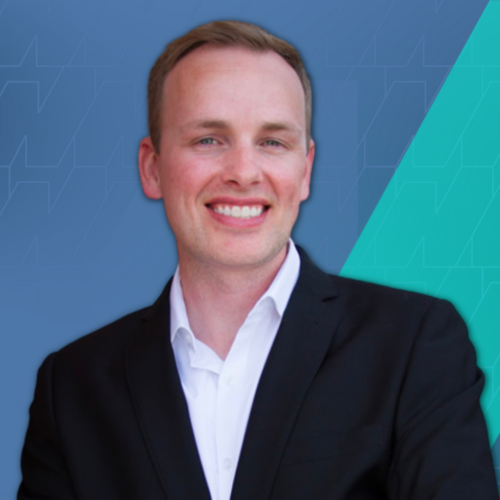
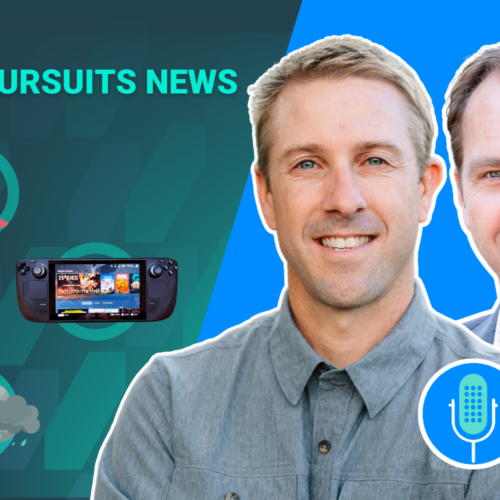
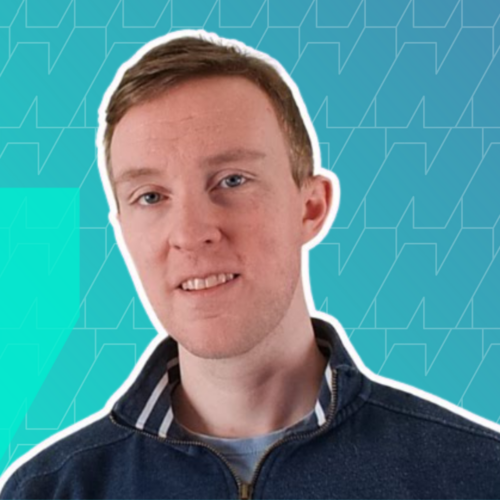
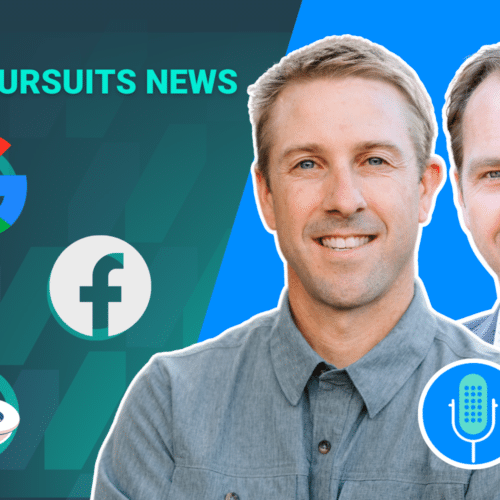
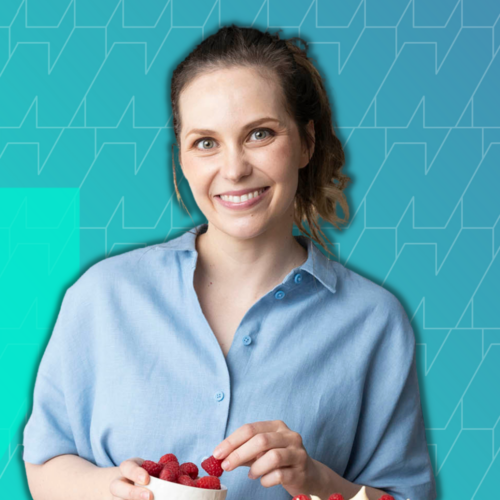





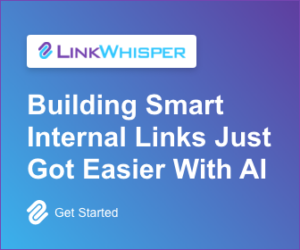
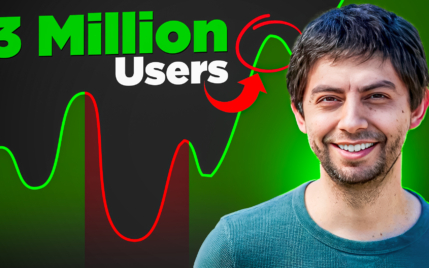

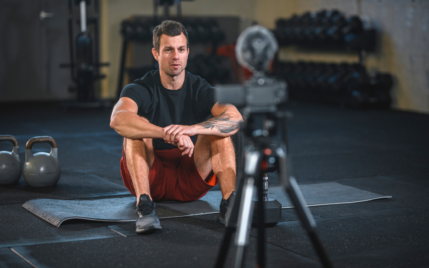



20 Comments
Conversation
Very interesting, I also hope to join the affiliate program but I still have problems with what content I will choose, thank you for sharing.
Do you get confirmation or proof from the people you interview that what they are saying is true?
We’ve previously done a guest post which you can see here: https://www.nichepursuits.com/quit-job-july-2014-now-make-20000-per-month-affiliate-websites/
So, I don’t think Spencer really needed to verify my details, plus I’ve published numerous reports myself on Facebook and on One Mans Brand.
Admittedly, I’d question this as well – might be worth something worth mentioning at the beginning of podcasts in the future Spencer?
No, not always. But I have no reason to doubt what they are saying. I’ve practiced very similar strategies and they work for me.
Hi Will
If you can share.. approximately what percentage of the sale price achieved for your website did the brokerage fees amount too ?
Thanks
Len
The majority of brokers charge using the following structure:
– 15% for sales below $1,000,000
– 10% for sales above $1,000,000
Then they usually have additional layers for $5,000,000+ e.t.c.
Great interview, was this a niche site or more authority.
As per your example, is it more a site about coffee machines specifically, or more about kitchen appliances?
Also what is the average cost of the products you were aiming at with the site?
Hi Chris, thanks.
It was a niche website and the average price of products varied considerably, there were a handful of product types which were in the following brackets:
– Product A: $20 – $100
– Product B: $50 – $200
– Product C: $100 – $2,500
Thanks Will
Question for Will Blears – From where you manage your site articles ? Any marketplace / Any agency or any of your favorite writer ?
I have a few writing contacts that I’ve been dealing with for years, I usually E-mail them a content template along with a few ideas and they give it to one of their several writers.
Unfortunately one of my contacts has ceased his writing business, so I am once again on the lookout, trying to find good writers.
Really a great interview. I do agree with a long post like 4k-5K words. But for long tails keywords (4-5 words), 1k words post is still effective for a niche site.
We know that things have been changed when compared to the past 5 years, we need to work smartly to standout in this competitive era.
Thanks, Spencer for providing valuable post again.
Thanks!
Agreed, there are certain keywords/subjects which writing 4,000 – 5,000 words of content is realistic and others where a simple 1,000 word write-up is sufficient.
Why no mention of the business loan? And why no mention of the penalty you received? This sounds so dodgy…
Please share more details, I’m unaware of a business loan, etc.
You don’t know the people your interviewing Spencer? Shame on you.
It appears the issues you brought up were not relevant to the site we talked about on the interview.
I am confused.
Why would I mention the business loan? That was for a completely different website, and I paid that back already.
The penalty I received was for a different website (the website the loan was for) so again, not sure it was relevant. Of course, if Spencer had asked, I’d have said it, nothing I am hiding here as ‘dodgy’ as you think things are.
Very inspirational interview!
Will, you mentioned your site(s) got hit in March 2017.
Did you manage to recover them? What actions did you take?